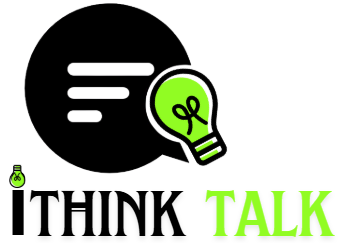Introduction
The feeling of i can’t think straight is a common experience, often arising in moments of high stress, anxiety, or emotional upheaval. This cognitive fog can make decision-making difficult, impair problem-solving, and create a sense of mental exhaustion. But why does this happen? What psychological and neurological mechanisms contribute to this state?
This article explores the underlying causes of cognitive dysfunction due to stress and emotional distress, detailing how these factors impact logical thinking. Additionally, we will discuss cognitive-behavioral techniques and psychological tools that can help restore mental clarity.
The Cognitive Impact of Stress
Stress, particularly chronic stress, has profound effects on the brain. When we encounter stress, the body activates the hypothalamic-pituitary-adrenal (HPA) axis, leading to an increased release of cortisol. While cortisol is useful in short bursts—helping us stay alert in emergencies—prolonged exposure can impair cognitive functions such as memory, focus, and decision-making.
Research indicates that excessive stress affects the prefrontal cortex, the region responsible for rational thinking and impulse control. This explains why people under stress often make impulsive choices, struggle with concentration, and feel mentally foggy.
Anxiety and Overthinking: The Paralysis of the Mind
Anxiety is closely related to stress but often manifests as chronic worry and heightened vigilance. The brain’s amygdala, responsible for processing fear, becomes hyperactive in anxious individuals, leading to persistent rumination. Overthinking creates a cognitive overload, preventing the brain from processing information efficiently.
Additionally, anxiety can cause analysis paralysis, where individuals overanalyze situations to the point of indecision. This results from an overactive limbic system interfering with the prefrontal cortex, making logical reasoning difficult.
Emotional Turmoil and Its Effect on Thought Clarity
Strong emotions such as grief, anger, and sadness can cloud judgment and disrupt logical thinking. When experiencing emotional distress, the brain prioritizes emotional processing over rational decision-making. This often leads to cognitive distortions—irrational thought patterns that can amplify negative emotions and impair reasoning.
For example, someone dealing with heartbreak may catastrophize situations, believing they will never find happiness again. Such thought patterns make it difficult to think logically or plan effectively.
How to Regain Mental Clarity
While cognitive disruption due to stress and emotional turmoil is natural, psychological strategies can help regain focus and clarity:
- Cognitive-Behavioral Techniques (CBT)
- Cognitive restructuring: Identifying and challenging irrational thoughts can reduce cognitive distortions and improve logical thinking.
- Grounding exercises: Techniques like the 5-4-3-2-1 method (naming five things you can see, four you can touch, etc.) can help shift focus from distressing thoughts.
- Cognitive restructuring: Identifying and challenging irrational thoughts can reduce cognitive distortions and improve logical thinking.
- Mindfulness and Relaxation Practices
- Mindfulness meditation: Research shows that mindfulness reduces amygdala activity and enhances prefrontal cortex function, improving focus and cognitive flexibility.
- Deep breathing techniques: Controlled breathing (e.g., box breathing) lowers cortisol levels and enhances concentration.
- Mindfulness meditation: Research shows that mindfulness reduces amygdala activity and enhances prefrontal cortex function, improving focus and cognitive flexibility.
- Break Tasks into Smaller Steps
- When overwhelmed, breaking tasks into manageable steps can reduce cognitive load and prevent mental fatigue.
- When overwhelmed, breaking tasks into manageable steps can reduce cognitive load and prevent mental fatigue.
- Limit Information Overload
- Reducing distractions, avoiding excessive multitasking, and setting information boundaries can enhance cognitive efficiency.
- Reducing distractions, avoiding excessive multitasking, and setting information boundaries can enhance cognitive efficiency.
- Engage in Physical Activity
- Exercise increases blood flow to the brain, enhances neuroplasticity, and reduces stress-related cognitive impairments.
- Exercise increases blood flow to the brain, enhances neuroplasticity, and reduces stress-related cognitive impairments.
Conclusion
The sensation that i can’t think straight often stems from underlying psychological and physiological factors such as stress, anxiety, and emotional turmoil. These conditions disrupt logical reasoning by overloading the brain’s cognitive resources, impairing memory, and increasing emotional reactivity.
By applying cognitive-behavioral techniques, mindfulness, and structured problem-solving strategies, individuals can regain mental clarity and improve their cognitive resilience. Understanding the root causes of cognitive fog allows for proactive interventions, ultimately fostering a more focused and balanced mind.
For more insights on mindful communication, check out Think Before You Speak.





